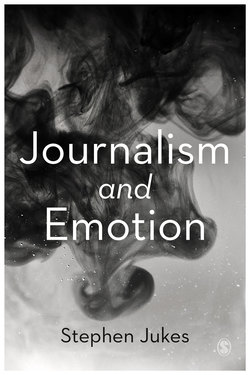Читать книгу Journalism and Emotion - Stephen Jukes - Страница 17
На сайте Литреса книга снята с продажи.
Establishment of a professional ideology
ОглавлениеDuring the interwar years, on both sides of the Atlantic, the professional ideology of journalism thus became firmly established as journalists sought to establish a clear line of demarcation from other writers and erect boundaries to protect their autonomy. This manifested itself in the development of professional organisations for journalists, prizes to recognise activity that exemplified the profession, university education and a series of practices that came to define the objectivity paradigm (and to exclude emotion).
Joseph Pulitzer had endowed the School of Journalism at Columbia University in New York in 1904, declaring that he wanted to ‘raise journalism to the rank of a learned profession’. Walter Lippmann, the journalist, intellectual and political commentator, stated that he wanted to upgrade the professional dignity of journalists and provide training ‘in which the ideal of objective testimony is cardinal’ (cited by Schudson, 2001: 163). The general manager of the Associated Press, Kent Cooper, spelt out the policy: ‘The journalist who deals in facts diligently developed and intelligently presented exalts his profession, and his stories need never be colourless or dull’ (2001: 162). Pulitzer was dismissive of the French press, which had not at that time adopted the fact-based approach to reporting. He criticised French reporters for expressing their own opinions, saying (cited in Chalaby, 1996: 311): ‘In America we want facts. Who cares about the philosophical speculations of our correspondents?’ Chalaby (1996: 312) attributes the slower development of Anglo-American norms in France partly to the fact that literary figures of the time such as Emile Zola, Honoré de Balzac and Victor Hugo were more involved in journalism. The same was true in the interwar years in France, with literary figures such as Antoine de St Exupéry, Albert Camus, Jean Cocteau, André Malraux and George Simenon all in editorial positions. In the United Kingdom, the Chartered Institute of Journalists had been set up as early as 1883.
By the end of the 1930s, the journalistic norms of objectivity had become firmly established along lines that are still recognisable today. While there are countless different definitions, Mindich (1998) identifies the five key components of this canon as: detachment (avoidance of reporters’ opinions or preconceived views); nonpartisanship (telling both sides of a story); the inverted pyramid writing style (with the most important facts in the lead paragraph); naïve empiricism (reliance on the facts); and balance (undistorted reporting). Schudson (2001: 150) takes a similar line, saying that objectivity ‘guides journalists to separate facts from values and report only the facts’, using a ‘cool, rather than emotional’ tone. He also adds the need for journalists to represent fairly each side of a story. Highly respected figures in television journalism perpetuated the objectivity paradigm – Cronkite, for example, defined objectivity as ‘the reporting of reality, of facts, as nearly as they can be obtained without the injection of prejudice and personal opinion’ (cited in Maras, 2013: 7). And as Mindich observed (1998: 1):
If American journalism were a religion, as it has been called from time to time, its supreme deity would be ‘objectivity.’ The high priests of journalism worship ‘objectivity’.
As a result, emotion was widely seen as something that contaminated objectivity (Richards & Rees, 2011: 863) and the binary relationship between rationality and the undesirability of emotion and subjectivity became reified (Wahl-Jorgensen, 2019: 25).
The paradox was – and still is – that while objectivity has been codified as a set of clearly defined practices, every journalist instinctively knows that an essential tool of the trade is the ability to capture and generate the emotions of citizens and nations (Coward, 2013). The classic ‘workaround’ that was developed involved injecting emotion into a story through the quotation of its protagonists in an institutionalised and systematic practice characterised as the ‘outsourcing’ of ‘emotion or strategic ritual of emotionality’ (Wahl-Jorgensen, 2019: 38). By doing this, journalists are able to infuse their stories with emotion without implicating themselves since they have outsourced the emotional labour to non-journalists. While the objectivity paradigm is specifically held aloft and is central to journalism teaching, this outsourcing constitutes a form of tacit knowledge that is implicit in everyday work (2019: 39).
